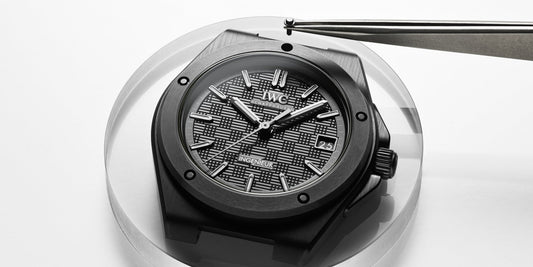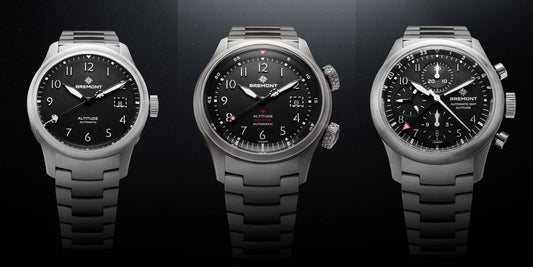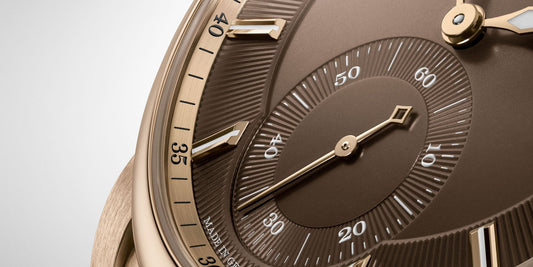In this article I explore why not all homages are the same as each other...
As one of Rolex’s most popular and long-running models, the Submariner has been copied and homage many times throughout the years. These homage watches have proven very divisive amongst the community, with some deriding these watches for lacking originality. However, there’s obviously a large portion of people who want the option to purchase a watch that’s similar to the Submariner, but much more affordable.
So, I thought it would be a good idea to compare two of the Submariner homages we offer on the website, so that we can see just how different these watches really are.
The first is the Barracuda Vintage Black from NTH. NTH are an American microbrand that specialise in watches that put a twist on design classics. It retails for £585, and is available in either a date or no-date version.
The second is the 20 ATMOS 1545 from renowned Italian dive watch manufacturer Squale. It retails for £550 and is only available from Authorised Squale Dealers.

The Cases
The cases of both watches are 40mm wide, with 48mm lug lengths. However, the NTH is somewhat thinner, being 11.5mm thick compared to the Squale’s 13mm.
Both wear well, but I think the NTH has the slightly more interesting case of the two, thanks to its thinness and the chamfered edges. It manages to evoke the classic Submariner silhouette without directly copying it. The Squale on the other hand has a much more traditional case, though this is not a copy of a Rolex case either.

The Squale 1545 has a scratch resistant ceramic bezel insert, just like you’ll find on the current Submariner. Whereas the NTH Barracuda opts for a steel insert. Steel can scratch, but unlike ceramic there’s absolutely no chance of it cracking when knocked. Each material has both pros and cons, but they also result in a strikingly different aesthetic between the two watches.
Both submariner homages use a sapphire crystal, but the NTH edges ahead on water resistance, having a solid 300m depth rating. Meanwhile the Squale has a nonetheless respectable 200m rating.
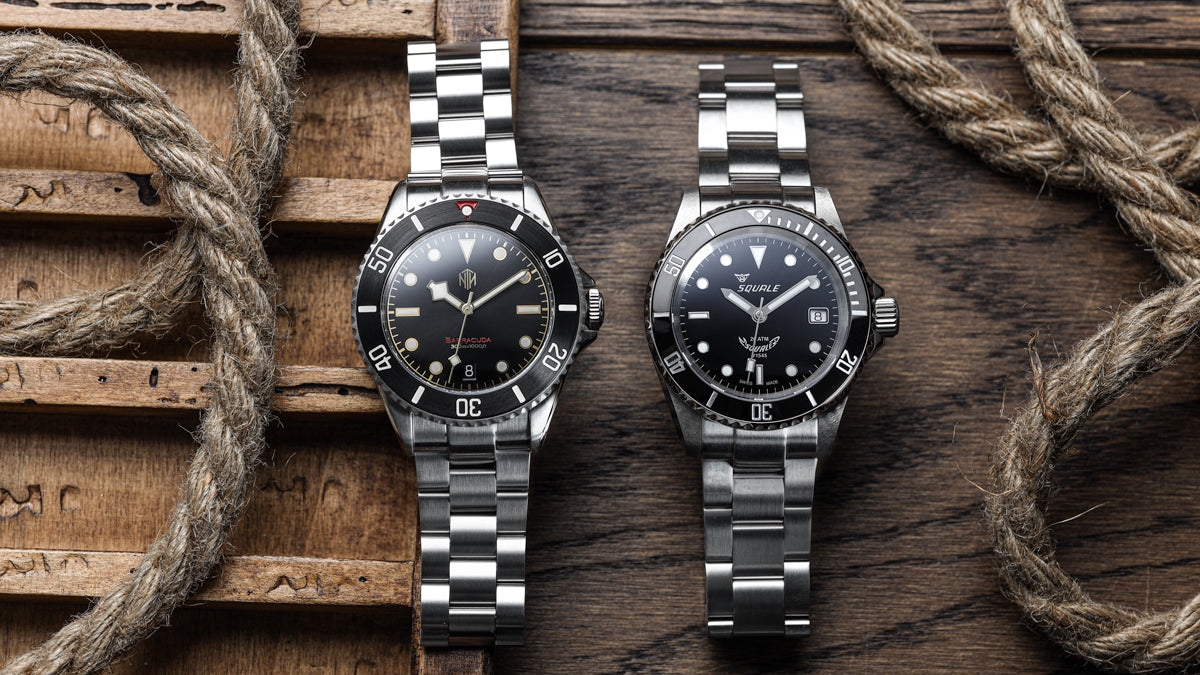
The Dials
Whilst the dial layout of both watches is based off the Submariner, each offers drastically different executions. The NTH has a much more vintage looking design, with the print being in gilt relief against a black sunburst base. The warm tones of the gold really help give the watch a retro look. The Squale on the other hand has a much more contemporary look, with polished applied numerals sat on a gloss black dial.
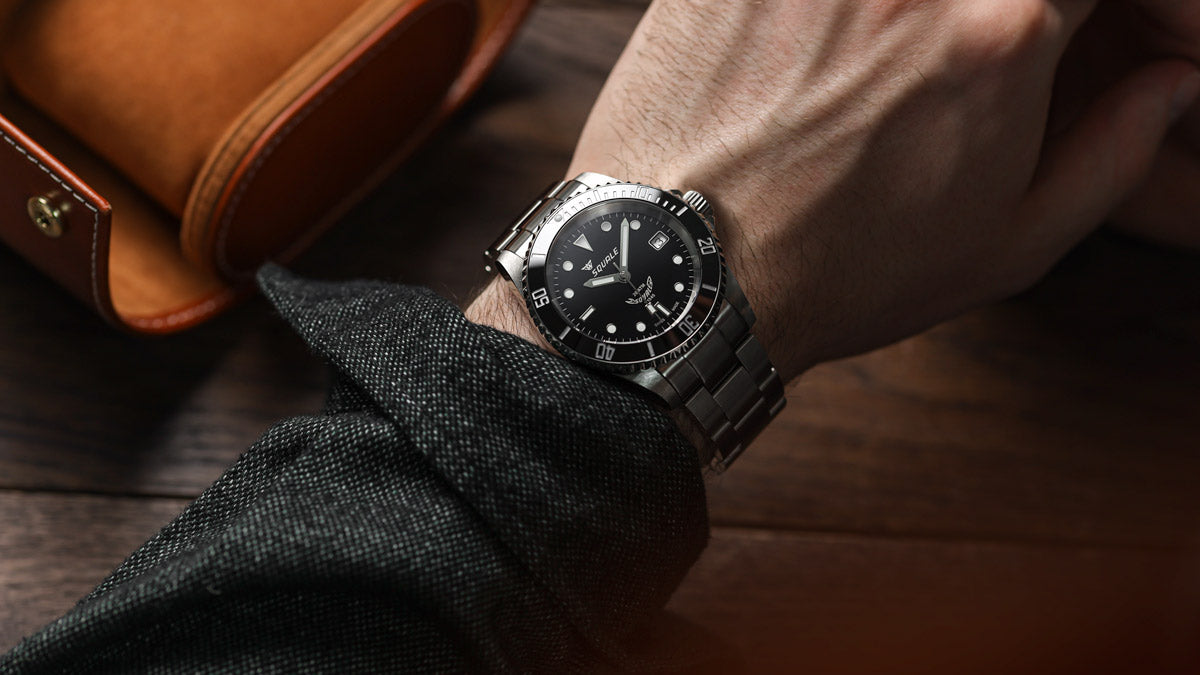
Neither watch has Mercedes hands. The Barracuda uses a snowflake handset, whilst the Squale 1545 has simple baton hands. Both are sensible choices as they stop the watches from looking too close to the designs they’re referencing.
The lume is one area where the NTH quite literally outshines the Squale. Both watches use Super-LumiNova, but the application on the Barracuda is much stronger and the watch glows like a torch after a blast from UV light.

The Movements
When it comes to the movements, the NTH uses the Miyota 90S5, and the Squale uses the Sellita SW200. Both movements are fairly similar, with the main differences being that the Miyota has 24 jewels and a 42-hour power reserve, compared to 26 jewels and 38-hours for the Sellita. There is much debate over which is better between Japanese or Swiss movements, but the reality is that both these movements are reliable choices for a dive watch.
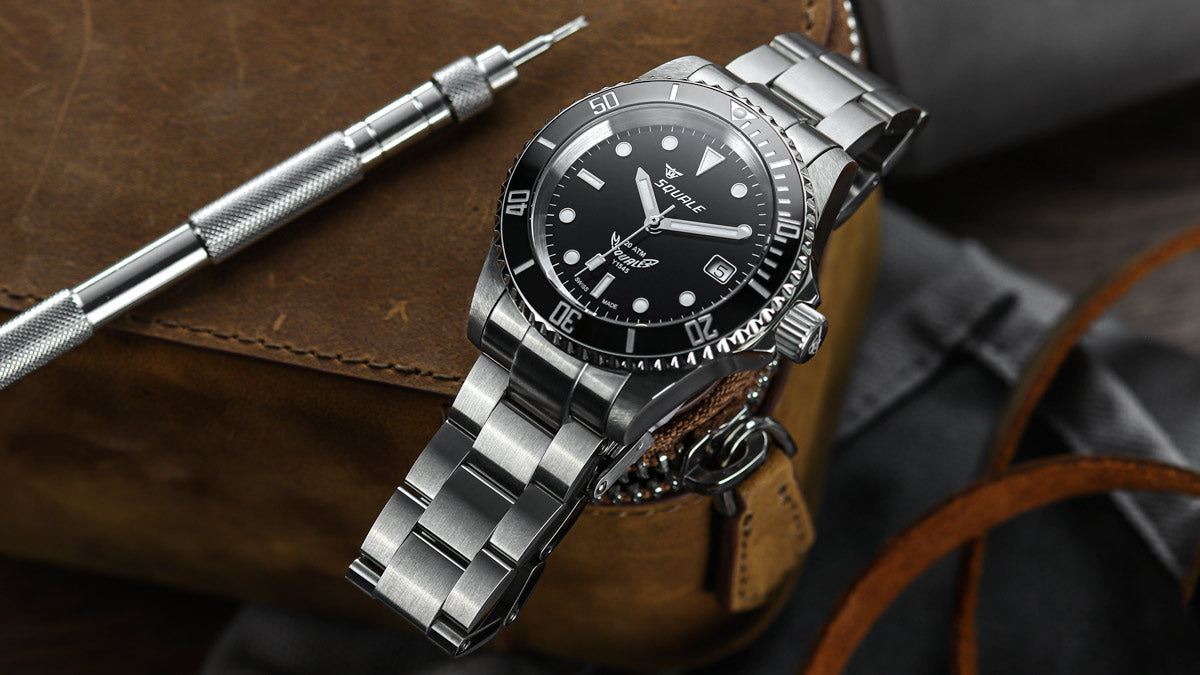
Final Thoughts
Personally, I think the biggest difference between these two submariner homages is actually in their appearance. Which is unexpected given that they’re based off the same design.
The NTH offers a more functional aesthetic, with some retro cues. The brushed steel bezel really helps make the watch look casual whilst also being a very sensible choice for a dive watch. It’s actually somewhat surprising that we don’t see more brands using steel bezel inserts.
Meanwhile, the Squale 1545 is a much dressier take on the classic dive watch design. The ceramic bezel, gloss dial, and polished markers all work to make for a much more formal looking watch. They also help make the 1545 look more contemporary than the NTH.
Though the watches differ slightly in their specifications, both are powered by reliable movements that are widely used in the industry, have good water resistance, and sapphire crystals. Therefore, when it comes to picking which is the better watch, it mostly comes down to which you prefer the look of.
Read more about each watch via the links below:


